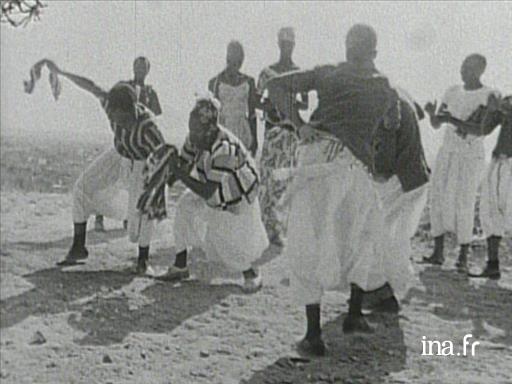Africa in France 1967

Information
Extract of a documentary dealing with the situation of immigrants from Senegal, Mali and Mauritania who came to work in Paris. To escape their harsh living conditions, in their homes located in the suburbs to the east of the capital, they get together, talk about their experiences, and try, as they say "to forget about their hardships through dance".
- Africa > Mali
- Africa > Mauritania
- Africa > Senegal
- Europe > France > Ile-de-France > Paris
Context
In 1967, Africa was no longer French, but France discovered this African France that had established itself in its suburbs.
At this time, the crisis had not yet shown its head, French migration policies encouraged the influx of cheap and under-qualified African migrants to satisfy the industrial needs of the French economy, which was happily experiencing the Trente Glorieuses. While the mainland institutions saw these populations as French a few years earlier, they now regarded them as a temporary workforce that would soon be returning home. In 1967, there were more than 60,000 immigrants working in Paris, Marseilles and Bordeaux. A minority that was hardly invisible and which were piled into housing that had become insalubrious.
This first generation of economic migrants to come from sub-Saharan Africa in the 1960s were just as convinced that it was only a temporary arrangement. They generally had heard stories told to them by their elders or followed in their footsteps, elders who had twice come to help a colonial power that had fallen into the clutches of the enemy. The promise of getting rich quick in a fast-growing Europe and the euphoria of independence in Africa fueled their hopes of a rapid return to their homeland.
But the reality once they arrived in France was quite different. Illiteracy, a lack of qualifications, and a changing industrial demand meant that the majority of these newcomers could not find jobs, and lived thanks to the solidarity shown by their communities. Migrants who had only come for economic reasons had to gradually adjust to a new cultural environment: learn a new language, understand the usual practices of an industrial economy, of a capitalist society, and live as Westerners... This loss of spatial, social, and cultural habits experienced by the migrants, heightened the need to withdraw into a familiar environment, that of their own community. By reproducing cultural, artistic and social practices, the migrants slowly recreated the world they had left behind. The first images show men and women performing a dance from West Africa (some of the steps are reminiscent of the Pinguiss leg dance), accompanied by their country's traditional instruments and clothing in a settings that we can presume to be Parc Beaumont, in Montreuil. This new contextualization allowed migrants, as explained by Dioncounda Bathily, to cope with the reality of their new environment.
This documentary, one of the first of its kind, was produced in 1967 while the black civil rights movement was reaching a climax on the other side of the Atlantic. It came after a scandal where certain Parisian bars had refused to serve «coloured» customers. French opinion woke up to their «own» Africa in the suburbs, which they could no longer ignore. How should they consider these recent immigrant populations who could end up living much longer in an increasingly hostile France?





